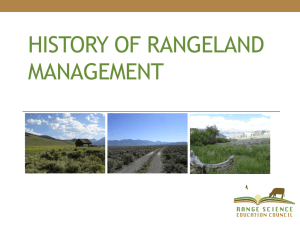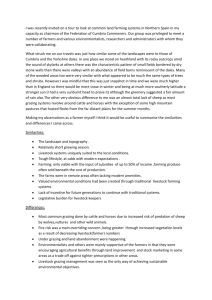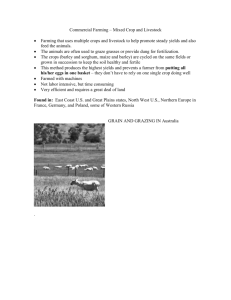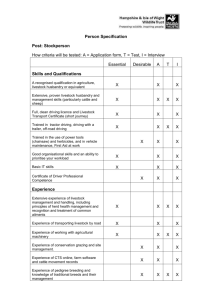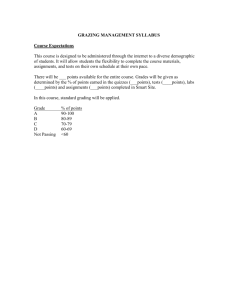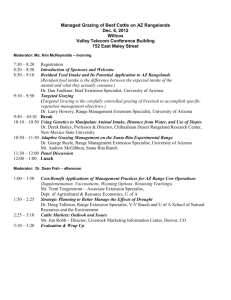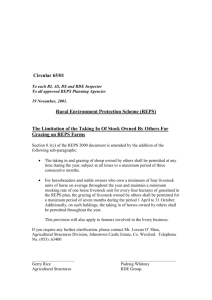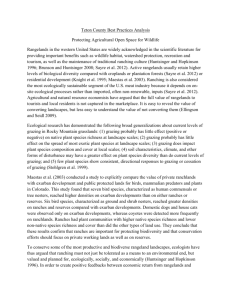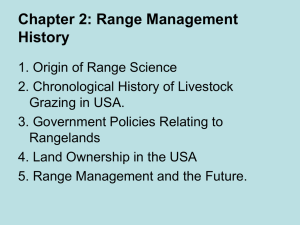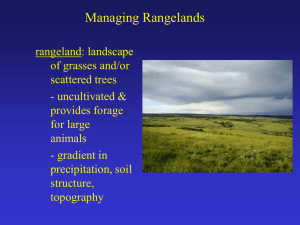Debate Guidelines 2015
advertisement
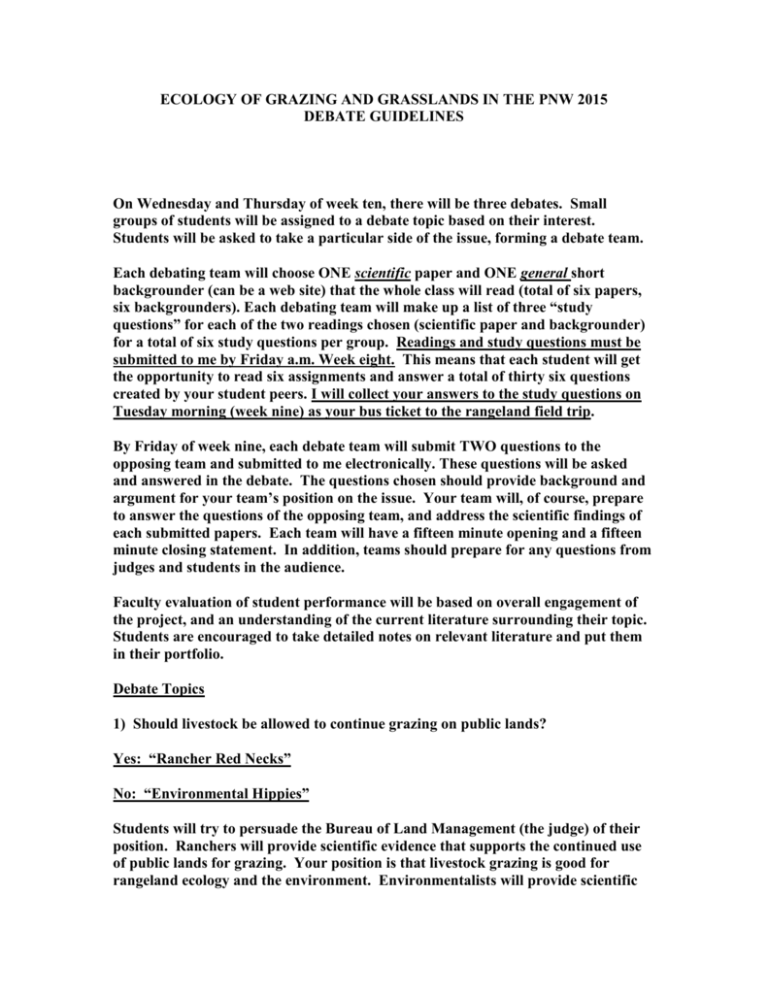
ECOLOGY OF GRAZING AND GRASSLANDS IN THE PNW 2015 DEBATE GUIDELINES On Wednesday and Thursday of week ten, there will be three debates. Small groups of students will be assigned to a debate topic based on their interest. Students will be asked to take a particular side of the issue, forming a debate team. Each debating team will choose ONE scientific paper and ONE general short backgrounder (can be a web site) that the whole class will read (total of six papers, six backgrounders). Each debating team will make up a list of three “study questions” for each of the two readings chosen (scientific paper and backgrounder) for a total of six study questions per group. Readings and study questions must be submitted to me by Friday a.m. Week eight. This means that each student will get the opportunity to read six assignments and answer a total of thirty six questions created by your student peers. I will collect your answers to the study questions on Tuesday morning (week nine) as your bus ticket to the rangeland field trip. By Friday of week nine, each debate team will submit TWO questions to the opposing team and submitted to me electronically. These questions will be asked and answered in the debate. The questions chosen should provide background and argument for your team’s position on the issue. Your team will, of course, prepare to answer the questions of the opposing team, and address the scientific findings of each submitted papers. Each team will have a fifteen minute opening and a fifteen minute closing statement. In addition, teams should prepare for any questions from judges and students in the audience. Faculty evaluation of student performance will be based on overall engagement of the project, and an understanding of the current literature surrounding their topic. Students are encouraged to take detailed notes on relevant literature and put them in their portfolio. Debate Topics 1) Should livestock be allowed to continue grazing on public lands? Yes: “Rancher Red Necks” No: “Environmental Hippies” Students will try to persuade the Bureau of Land Management (the judge) of their position. Ranchers will provide scientific evidence that supports the continued use of public lands for grazing. Your position is that livestock grazing is good for rangeland ecology and the environment. Environmentalists will provide scientific evidence that supports a ban on grazing of public lands. Your position is that livestock grazing is damaging to rangeland ecology and the environment. Any scientific studies pertinent to your argument should be read and interpreted. Special attention should be paid to what constitutes a healthy rangeland, what kind of ecological impacts does livestock grazing have on the environment, and how various grazing systems differ. Be sure to also have a complete understanding of the social and economic issues of the debate. Ranchers and Environmentalists should address such questions as how rangeland grazing affects rural communities, and an assessment of historical claims to western lands. Grazing fee increases and voluntary grazing permit buyouts must also be discussed. 2) Should the Washington and Oregon state department of fish and wildlife be allowed to eliminate certain wolf packs that predate livestock? Yes: “Rancher with Guns” No: “Protectors of the Wolves” Students will attempt to persuade the WDFW and ODFW of their position. Ranchers will provide scientific evidence that shows that wolves are killing and harassing their cattle, making their livelihood and ‘way of life’ untenable. Wolf Protectors will show that wolves are not a major threat to cattle and ranchers, and that there are non lethal methods that can be used effectively. Both groups will need to become familiar with the scientific literature showing potential benefits and costs of increasing wolf populations to ecosystems, wildlife, and humans. A solid understanding of the Endangered Species Act, federal and state laws regarding wolf populations, and current information regarding livestock predation and state fish/wildlife actions must be attained by both teams. 3) Is grass finished beef more environmentally sustainable than current grain fed feedlot practices? Yes: “All-Natural Foodie Hipsters” No: “Feed the World Industrialists” Students will persuade the general consumer public (judge) of their position. The Foodies and Industrialists will provide scientific evidence demonstrating that grass finished (no forms of concentrate/grain given) beef is either better or worse for the environment; in terms of climate change (green house gas emissions), natural resource use (water, energy), land use (space needed, potential degradation, and environmental pollution), and effect on wildlife. Both teams must become familiar with different effects of feed on methane/carbon/nitrogen emissions by cattle, detailed calculations involving carbon sequestration, landscape ecology concepts, and complete familiarity with inputs and outputs of cattle feeding operations. Note that this is not a debate on whether grass finished beef is healthier for humans or better for animal welfare.
